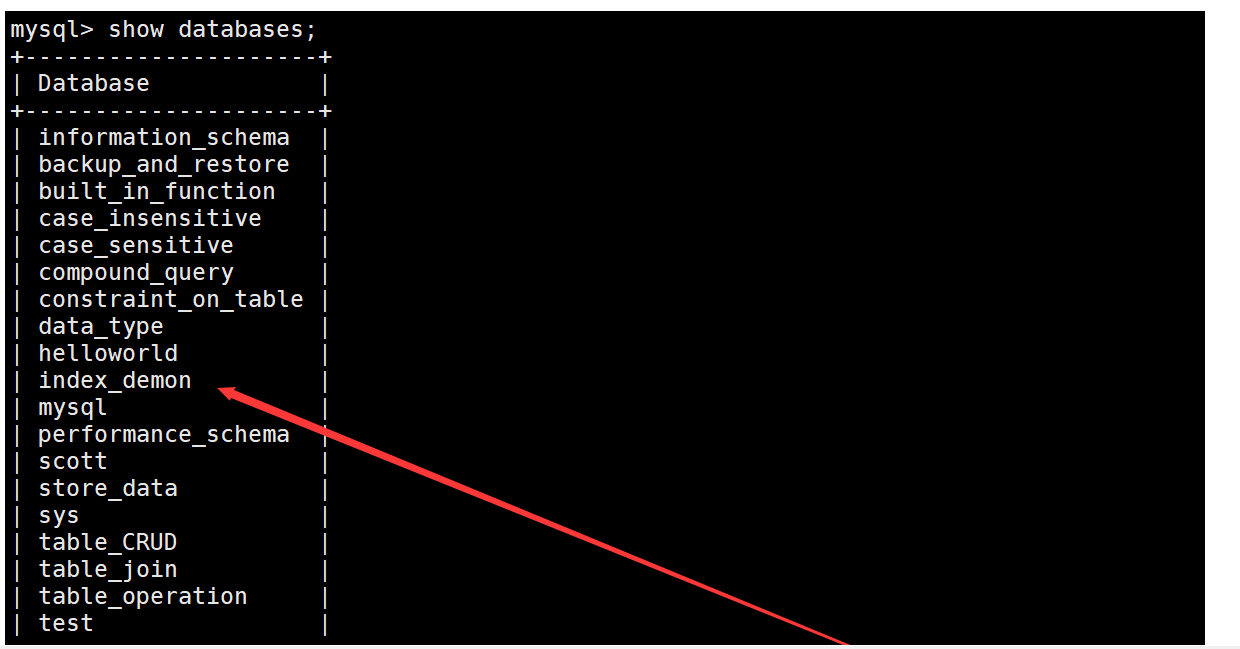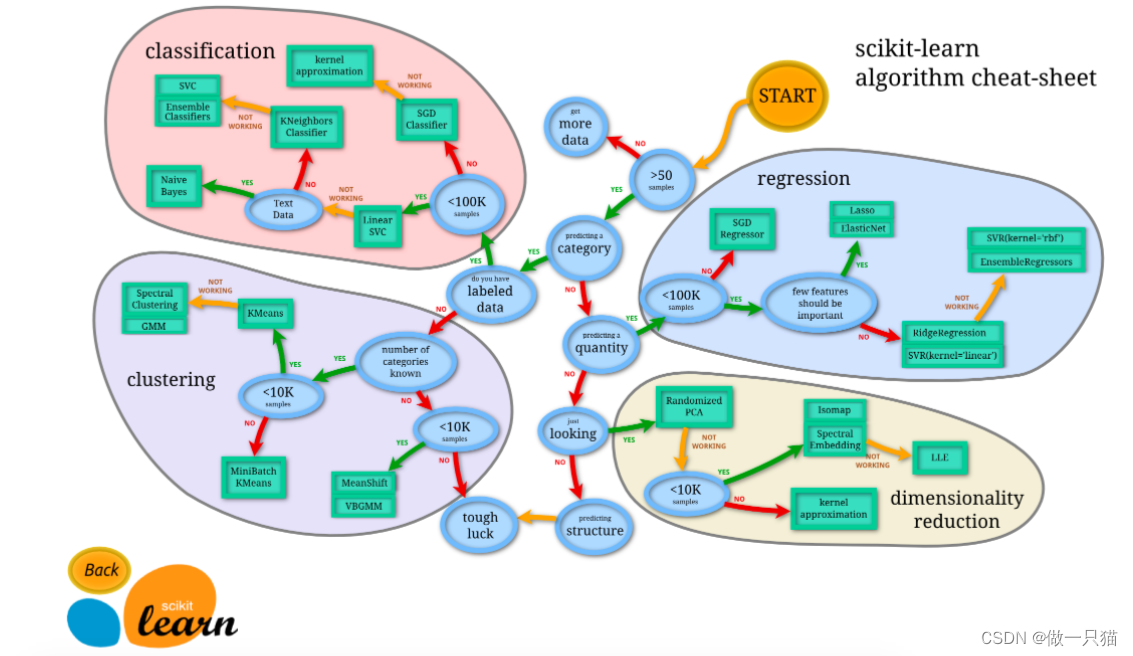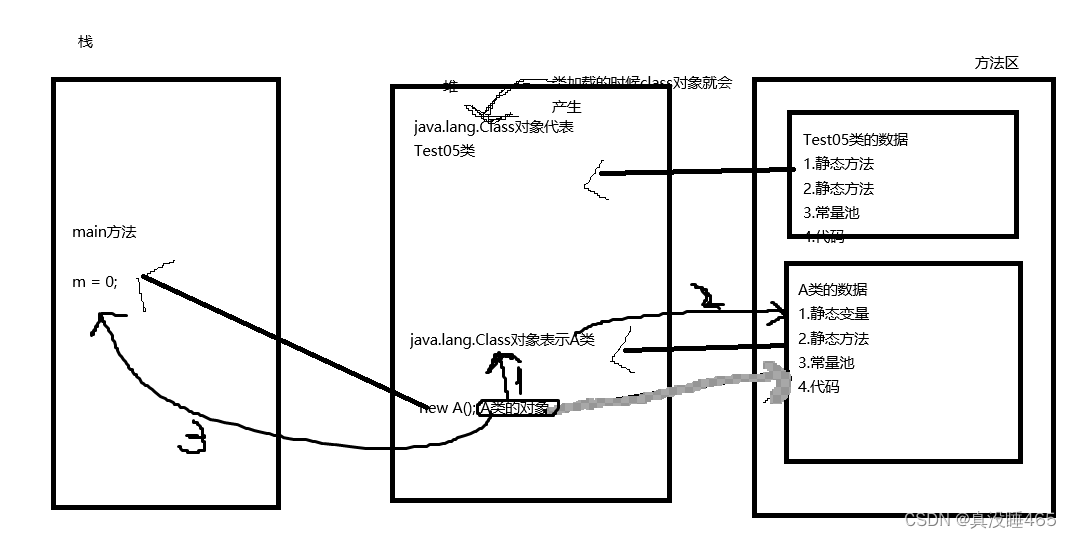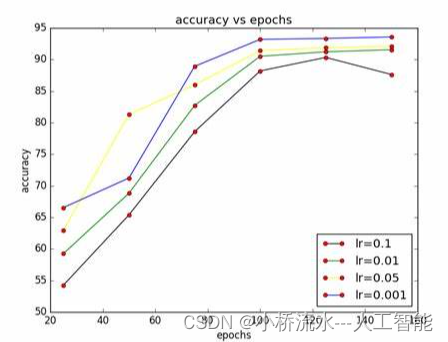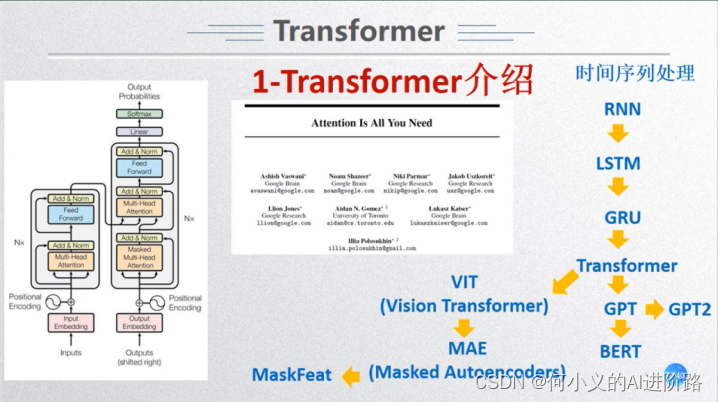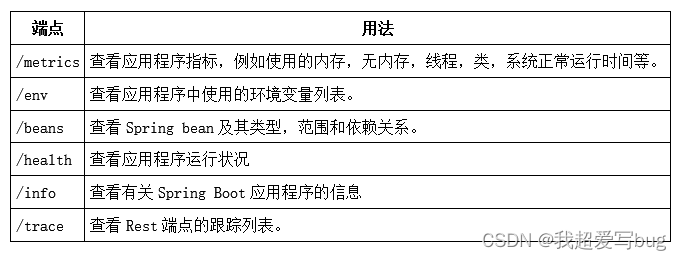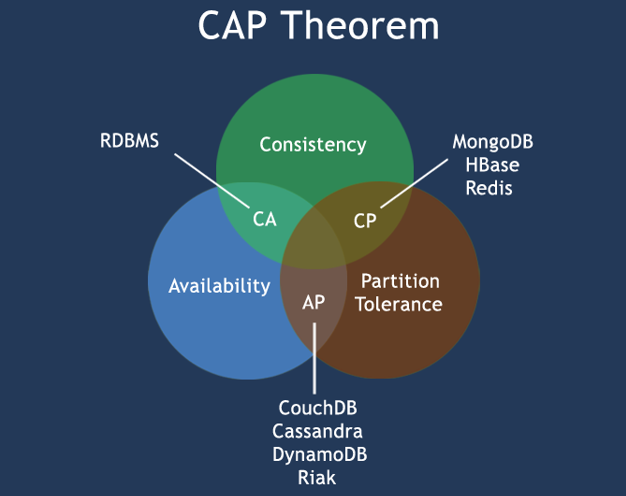大纲
- 环境准备
- 分析代码
- 整理结果
- 结果展示
- 指标说明
-
- Afferent Connections per Class (ACC) metric
- Average Cyclomatic Complexity per Method (ACCM) metric
- Average Method Lines of Code (AMLOC) metric
- Average Number of Parameters (ANPM) metric
- Coupling Between Objects (CBO) metric
- Depth of Inheritance Tree (DIT) metric
- Lack of Cohesion of Methods (LCOM4) metric
- Lines of Code (LOC) metric
- Number of Attributes (NOA) metric
- Number of Children (NOC) metric
- Number of Methods (NOM) metric
- Number of Public Attributes (NPA) metric
- Number of Public Methods (NPM) metric
- Response for Class (RFC) metric
- Structural Complexity (SC) metric
- 代码
- 参考资料
Analizo是一款可以给C、C++、Java以及C#代码进行评分的开源软件。我们可以使用它来分析代码,并得到如下指标的评分
- Afferent Connections per Class (ACC) metric
- Average Cyclomatic Complexity per Method (ACCM) metric
- Average Method Lines of Code (AMLOC) metric
- Average Number of Parameters (ANPM) metric
- Coupling Between Objects (CBO) metric
- Depth of Inheritance Tree (DIT) metric
- Lack of Cohesion of Methods (LCOM4) metric
- Lines of Code (LOC) metric
- Number of Attributes (NOA) metric
- Number of Children (NOC) metric
- Number of Methods (NOM) metric
- Number of Public Attributes (NPA) metric
- Number of Public Methods (NPM) metric
- Response for Class (RFC) metric
- Structural Complexity (SC) metric
这些评分是我们评价代码质量和可维护性的一种依据。
比如Average Cyclomatic Complexity per Method (ACCM) metric,即平均圈复杂度。这是1976年由Thomas J. McCabe, Sr. 提出来的一种代码复杂度的衡量标准。它的算法也很简单,即
V(G) = e – n + 2
其中e是边数量,n是节点数量。

比如上图显示,if else逻辑的圈复杂度是4-4+2=2;而switch case则是6-5+2=3。即上图中的switch case的复杂度要高些,这是因为它要处理的分支要多一些。更多的分支意味着逻辑复杂,也意味着程序写的复杂。
其他指标后面会展开说。我们先看看如何使用Analizo分析出这些指标。
环境准备
Analizo的安装依赖于perl以及其他相关组件,编译和安装的命令如下。
sudo apt update && sudo apt upgrade -y
sudo apt install perl
sudo apt install doxygen-doxyparse
sudo apt install cpanminus
sudo cpanm File::ShareDir::Install
sudo cpanm FindBin::libs
sudo cpanm App::Cmd::Setup
sudo cpanm Class::Inspector
sudo cpanm Env::Path
sudo cpanm Class::Accessor::Fast
sudo cpanm Graph
sudo cpanm Graph::Writer::Dot
sudo cpanm YAML::XS
sudo cpanm Statistics::Descriptive
sudo cpanm File::HomeDir
sudo cpanm CHI
sudo cpanm File::Copy::Recursive
git clone https://git.launchpad.net/ubuntu/+source/analizo
cd analizo
perl Makefile.PL
make
sudo make install
分析代码
我们还是分析《静态分析C语言生成函数调用关系的利器——cflow(二)》中的libevent源码。因为build文件夹是在编译过程中产生的,所以我们需要将其排除。(否则有很多中间文件)
analizo metrics ../../libevent/ --exclude ../../libevent/build > libevent_matrics.yaml
整理结果
环境准备
我们使用pandas解析上面产生的yaml文件,所以需要安装一些python包。env.sh是《管理Python虚拟环境的脚本》中介绍的python虚拟环境管理脚本。
source env.sh init
source env.sh enter
source env.sh install pyyaml
source env.sh install pandas
source env.sh install tabulate
将结果转换成markdown格式
import pandas as pd
import yaml
import sys
def yaml2md(yaml_file, md_file):
li = []
summary = None
with open(yaml_file, 'r') as f:
for g in yaml.safe_load_all(f):
if "_module" in g:
li.append(g)
else:
summary = pd.json_normalize(yaml.safe_load_all(yaml.safe_dump_all([g])))
df = pd.json_normalize(yaml.safe_load_all(yaml.safe_dump_all(li)))
df.set_index("_module", inplace=True)
column_to_move = df.pop("_filename")
df.insert(len(df.columns), "name", column_to_move)
with open(md_file, 'w') as f:
f.write(df.to_markdown())
if __name__ == "__main__":
yaml_path = sys.argv[1]
md_path = sys.argv[2]
yaml2md(yaml_path, md_path)
结果展示
| _module | acc | accm | amloc | anpm | cbo | dit | lcom4 | loc | mmloc | noa | noc | nom | npa | npm | rfc | sc | name |
|---|---|---|---|---|---|---|---|---|---|---|---|---|---|---|---|---|---|
| getopt | 5 | 8 | 40 | 2 | 0 | 0 | 1 | 80 | 66 | 12 | 0 | 2 | 12 | 2 | 8 | 0 | [‘WIN32-Code/getopt.c’, ‘WIN32-Code/getopt.h’] |
| getopt_long | 0 | 5.33333 | 49.3333 | 3 | 1 | 0 | 1 | 148 | 75 | 5 | 0 | 3 | 5 | 3 | 18 | 1 | [‘WIN32-Code/getopt_long.c’] |
| tree | 0 | 0 | 0 | 0 | 0 | 0 | 0 | 0 | 0 | 0 | 0 | 0 | 0 | 0 | 0 | 0 | [‘WIN32-Code/tree.h’] |
| arc4random | 1 | 2.73333 | 16.4 | 0.733333 | 0 | 0 | 1 | 246 | 40 | 8 | 0 | 15 | 8 | 15 | 61 | 0 | [‘arc4random.c’] |
| buffer | 37 | 5.16327 | 29.7551 | 2.29592 | 5 | 0 | 21 | 2916 | 133 | 11 | 0 | 98 | 11 | 98 | 605 | 105 | [‘buffer.c’, ‘include/event2/buffer.h’] |
| buffer_iocp | 0 | 1.22222 | 26.2222 | 1.88889 | 2 | 0 | 2 | 236 | 72 | 7 | 0 | 9 | 7 | 9 | 79 | 4 | [‘buffer_iocp.c’] |
| bufferevent-internal | 9 | 3 | 9 | 3 | 2 | 0 | 1 | 9 | 9 | 57 | 0 | 1 | 57 | 1 | 9 | 2 | [‘bufferevent-internal.h’] |
| bufferevent | 25 | 2.09259 | 15.6296 | 2.05556 | 10 | 0 | 28 | 844 | 78 | 0 | 0 | 54 | 0 | 54 | 296 | 280 | [‘bufferevent.c’, ‘include/event2/bufferevent.h’] |
| bufferevent_async | 0 | 2.5 | 19.4286 | 2.03571 | 9 | 0 | 4 | 544 | 54 | 10 | 0 | 28 | 10 | 28 | 208 | 36 | [‘bufferevent_async.c’] |
| bufferevent_filter | 2 | 2.57895 | 24 | 2.57895 | 5 | 0 | 2 | 456 | 77 | 10 | 0 | 19 | 10 | 19 | 113 | 10 | [‘bufferevent_filter.c’] |
| bufferevent_mbedtls | 3 | 2 | 10 | 1.75862 | 8 | 0 | 15 | 290 | 50 | 3 | 0 | 29 | 3 | 29 | 85 | 120 | [‘bufferevent_mbedtls.c’] |
| bufferevent_openssl | 4 | 2.82759 | 12.7586 | 1.86207 | 8 | 0 | 19 | 370 | 55 | 2 | 0 | 29 | 2 | 29 | 89 | 152 | [‘bufferevent_openssl.c’] |
| bufferevent_pair | 1 | 3.28571 | 18.8571 | 1.85714 | 6 | 0 | 2 | 264 | 40 | 4 | 0 | 14 | 4 | 14 | 82 | 12 | [‘bufferevent_pair.c’] |
| bufferevent_ratelim | 3 | 2.81818 | 20.3864 | 1.70455 | 7 | 0 | 17 | 897 | 76 | 0 | 0 | 44 | 0 | 44 | 319 | 119 | [‘bufferevent_ratelim.c’] |
| bufferevent_sock | 15 | 5.57143 | 26.619 | 2.71429 | 8 | 0 | 8 | 559 | 112 | 1 | 0 | 21 | 1 | 21 | 177 | 64 | [‘bufferevent_sock.c’] |
| bufferevent_ssl | 3 | 5.06977 | 22.6744 | 1.83721 | 9 | 0 | 3 | 975 | 86 | 1 | 0 | 43 | 1 | 43 | 400 | 27 | [‘bufferevent_ssl.c’, ‘include/event2/bufferevent_ssl.h’] |
| changelist-internal | 1 | 0 | 0 | 0 | 0 | 0 | 0 | 0 | 0 | 5 | 0 | 0 | 5 | 0 | 0 | 0 | [‘changelist-internal.h’] |
| CheckFileOffsetBits | 1 | 1 | 5 | 0 | 0 | 0 | 1 | 5 | 5 | 1 | 0 | 1 | 1 | 1 | 1 | 0 | [‘cmake/CheckFileOffsetBits.c’] |
| queue | 0 | 0 | 0 | 0 | 0 | 0 | 0 | 0 | 0 | 0 | 0 | 0 | 0 | 0 | 0 | 0 | [‘compat/sys/queue.h’] |
| defer-internal | 0 | 0 | 0 | 0 | 0 | 0 | 0 | 0 | 0 | 0 | 0 | 0 | 0 | 0 | 0 | 0 | [‘defer-internal.h’] |
| epoll_sub | 0 | 1.33333 | 8.33333 | 3 | 1 | 0 | 3 | 25 | 12 | 0 | 0 | 3 | 0 | 3 | 4 | 3 | [‘epoll_sub.c’] |
| epolltable-internal | 0 | 0 | 0 | 0 | 0 | 0 | 0 | 0 | 0 | 3 | 0 | 0 | 3 | 0 | 0 | 0 | [‘epolltable-internal.h’] |
| evbuffer-internal | 6 | 0 | 0 | 0 | 0 | 0 | 0 | 0 | 0 | 49 | 0 | 0 | 49 | 0 | 0 | 0 | [‘evbuffer-internal.h’] |
| evdns | 6 | 5.26087 | 27.236 | 2.32919 | 13 | 0 | 2 | 4385 | 202 | 158 | 0 | 161 | 158 | 161 | 1177 | 26 | [‘evdns.c’] |
| event-internal | 13 | 0 | 0 | 0 | 0 | 0 | 0 | 0 | 0 | 82 | 0 | 0 | 82 | 0 | 0 | 0 | [‘event-internal.h’] |
| event | 58 | 3.22485 | 19.4201 | 1.75148 | 12 | 0 | 31 | 3282 | 170 | 11 | 0 | 169 | 11 | 169 | 989 | 372 | [‘event.c’] |
| event_iocp | 3 | 1.76923 | 15.3846 | 1.76923 | 3 | 0 | 6 | 200 | 49 | 2 | 0 | 13 | 2 | 13 | 27 | 18 | [‘event_iocp.c’] |
| event_tagging | 4 | 2.62069 | 12 | 2.48276 | 2 | 0 | 3 | 348 | 46 | 0 | 0 | 29 | 0 | 29 | 92 | 6 | [‘event_tagging.c’] |
| evmap-internal | 0 | 0 | 0 | 0 | 0 | 0 | 0 | 0 | 0 | 0 | 0 | 0 | 0 | 0 | 0 | 0 | [‘evmap-internal.h’] |
| evmap | 0 | 1.84615 | 18.0769 | 2.5641 | 7 | 0 | 6 | 705 | 77 | 8 | 0 | 39 | 8 | 39 | 228 | 42 | [‘evmap.c’] |
| evrpc-internal | 2 | 0 | 0 | 0 | 0 | 0 | 0 | 0 | 0 | 37 | 0 | 0 | 37 | 0 | 0 | 0 | [‘evrpc-internal.h’] |
| evrpc | 1 | 3.26087 | 20.6304 | 2.63043 | 10 | 0 | 14 | 949 | 57 | 0 | 0 | 46 | 0 | 46 | 297 | 140 | [‘evrpc.c’] |
| evsignal-internal | 4 | 1 | 1 | 1 | 0 | 0 | 1 | 1 | 1 | 6 | 0 | 1 | 6 | 1 | 1 | 0 | [‘evsignal-internal.h’] |
| evthread-internal | 0 | 2 | 11 | 1 | 1 | 0 | 1 | 11 | 11 | 4 | 0 | 1 | 4 | 1 | 3 | 1 | [‘evthread-internal.h’] |
| evthread | 5 | 3.22222 | 17 | 1.22222 | 3 | 0 | 1 | 306 | 54 | 13 | 0 | 18 | 13 | 18 | 103 | 3 | [‘evthread.c’] |
| evthread_pthread | 1 | 3.09091 | 14.6364 | 1.36364 | 2 | 0 | 1 | 161 | 56 | 4 | 0 | 11 | 4 | 11 | 31 | 2 | [‘evthread_pthread.c’] |
| evthread_win32 | 5 | 2.9 | 18 | 1.4 | 2 | 0 | 1 | 180 | 65 | 5 | 0 | 10 | 5 | 10 | 40 | 2 | [‘evthread_win32.c’] |
| evutil | 38 | 4.01389 | 29.4861 | 1.86111 | 8 | 0 | 27 | 2123 | 189 | 17 | 0 | 72 | 17 | 72 | 214 | 216 | [‘evutil.c’] |
| evutil_rand | 6 | 1.125 | 6.5 | 1 | 1 | 0 | 5 | 52 | 10 | 1 | 0 | 8 | 1 | 8 | 14 | 5 | [‘evutil_rand.c’] |
| evutil_time | 22 | 2.45455 | 17.7273 | 1.63636 | 3 | 0 | 7 | 195 | 50 | 0 | 0 | 11 | 0 | 11 | 20 | 21 | [‘evutil_time.c’] |
| ht-internal | 0 | 1.5 | 11 | 1 | 0 | 0 | 2 | 22 | 12 | 0 | 0 | 2 | 0 | 2 | 2 | 0 | [‘ht-internal.h’] |
| http-internal | 4 | 0 | 0 | 0 | 0 | 0 | 0 | 0 | 0 | 57 | 0 | 0 | 57 | 0 | 0 | 0 | [‘http-internal.h’] |
| http | 10 | 3.77523 | 21.3853 | 2.00917 | 17 | 0 | 55 | 4662 | 264 | 23 | 0 | 218 | 23 | 218 | 1257 | 935 | [‘http.c’, ‘include/event2/http.h’] |
| buffer_compat | 0 | 0 | 0 | 0 | 0 | 0 | 0 | 0 | 0 | 0 | 0 | 0 | 0 | 0 | 0 | 0 | [‘include/event2/buffer_compat.h’] |
| bufferevent_compat | 0 | 0 | 0 | 0 | 0 | 0 | 0 | 0 | 0 | 0 | 0 | 0 | 0 | 0 | 0 | 0 | [‘include/event2/bufferevent_compat.h’] |
| bufferevent_struct | 13 | 0 | 0 | 0 | 0 | 0 | 0 | 0 | 0 | 15 | 0 | 0 | 15 | 0 | 0 | 0 | [‘include/event2/bufferevent_struct.h’] |
| dns | 0 | 0 | 0 | 0 | 0 | 0 | 0 | 0 | 0 | 0 | 0 | 0 | 0 | 0 | 0 | 0 | [‘include/event2/dns.h’] |
| dns_compat | 0 | 0 | 0 | 0 | 0 | 0 | 0 | 0 | 0 | 0 | 0 | 0 | 0 | 0 | 0 | 0 | [‘include/event2/dns_compat.h’] |
| dns_struct | 4 | 0 | 0 | 0 | 0 | 0 | 0 | 0 | 0 | 6 | 0 | 0 | 6 | 0 | 0 | 0 | [‘include/event2/dns_struct.h’] |
| event2/event | 0 | 0 | 0 | 0 | 0 | 0 | 0 | 0 | 0 | 0 | 0 | 0 | 0 | 0 | 0 | 0 | [‘include/event2/event.h’] |
| event_compat | 0 | 0 | 0 | 0 | 0 | 0 | 0 | 0 | 0 | 0 | 0 | 0 | 0 | 0 | 0 | 0 | [‘include/event2/event_compat.h’] |
| event_struct | 6 | 0 | 0 | 0 | 0 | 0 | 0 | 0 | 0 | 32 | 0 | 0 | 32 | 0 | 0 | 0 | [‘include/event2/event_struct.h’] |
| http_compat | 0 | 0 | 0 | 0 | 0 | 0 | 0 | 0 | 0 | 0 | 0 | 0 | 0 | 0 | 0 | 0 | [‘include/event2/http_compat.h’] |
| http_struct | 5 | 0 | 0 | 0 | 0 | 0 | 0 | 0 | 0 | 34 | 0 | 0 | 34 | 0 | 0 | 0 | [‘include/event2/http_struct.h’] |
| keyvalq_struct | 2 | 0 | 0 | 0 | 0 | 0 | 0 | 0 | 0 | 2 | 0 | 0 | 2 | 0 | 0 | 0 | [‘include/event2/keyvalq_struct.h’] |
| listener | 13 | 4.25 | 18.875 | 2 | 5 | 0 | 1 | 302 | 77 | 18 | 0 | 16 | 18 | 16 | 96 | 5 | [‘include/event2/listener.h’, ‘listener.c’] |
| rpc | 0 | 0 | 0 | 0 | 0 | 0 | 0 | 0 | 0 | 0 | 0 | 0 | 0 | 0 | 0 | 0 | [‘include/event2/rpc.h’] |
| rpc_compat | 0 | 0 | 0 | 0 | 0 | 0 | 0 | 0 | 0 | 0 | 0 | 0 | 0 | 0 | 0 | 0 | [‘include/event2/rpc_compat.h’] |
| rpc_struct | 2 | 0 | 0 | 0 | 0 | 0 | 0 | 0 | 0 | 15 | 0 | 0 | 15 | 0 | 0 | 0 | [‘include/event2/rpc_struct.h’] |
| tag | 0 | 0 | 0 | 0 | 0 | 0 | 0 | 0 | 0 | 0 | 0 | 0 | 0 | 0 | 0 | 0 | [‘include/event2/tag.h’] |
| tag_compat | 0 | 0 | 0 | 0 | 0 | 0 | 0 | 0 | 0 | 0 | 0 | 0 | 0 | 0 | 0 | 0 | [‘include/event2/tag_compat.h’] |
| thread | 2 | 0 | 0 | 0 | 0 | 0 | 0 | 0 | 0 | 11 | 0 | 0 | 11 | 0 | 0 | 0 | [‘include/event2/thread.h’] |
| util | 9 | 0 | 0 | 0 | 0 | 0 | 0 | 0 | 0 | 8 | 0 | 0 | 8 | 0 | 0 | 0 | [‘include/event2/util.h’] |
| visibility | 0 | 0 | 0 | 0 | 0 | 0 | 0 | 0 | 0 | 0 | 0 | 0 | 0 | 0 | 0 | 0 | [‘include/event2/visibility.h’] |
| watch | 2 | 1.33333 | 7.16667 | 2.33333 | 3 | 0 | 4 | 43 | 14 | 0 | 0 | 6 | 0 | 6 | 24 | 12 | [‘include/event2/watch.h’, ‘watch.c’] |
| ws | 3 | 3.35294 | 22.2353 | 2.58824 | 7 | 0 | 4 | 378 | 88 | 2 | 0 | 17 | 2 | 17 | 72 | 28 | [‘include/event2/ws.h’, ‘ws.c’] |
| iocp-internal | 1 | 0 | 0 | 0 | 0 | 0 | 0 | 0 | 0 | 1 | 0 | 0 | 1 | 0 | 0 | 0 | [‘iocp-internal.h’] |
| ipv6-internal | 8 | 0 | 0 | 0 | 0 | 0 | 0 | 0 | 0 | 4 | 0 | 0 | 4 | 0 | 0 | 0 | [‘ipv6-internal.h’] |
| kqueue-internal | 0 | 0 | 0 | 0 | 0 | 0 | 0 | 0 | 0 | 0 | 0 | 0 | 0 | 0 | 0 | 0 | [‘kqueue-internal.h’] |
| log-internal | 23 | 1 | 1 | 2.77778 | 0 | 0 | 9 | 9 | 1 | 2 | 0 | 9 | 2 | 9 | 9 | 0 | [‘log-internal.h’] |
| log | 5 | 1.78571 | 10.0714 | 2.21429 | 1 | 0 | 2 | 141 | 26 | 3 | 0 | 14 | 3 | 14 | 33 | 2 | [‘log.c’] |
| minheap-internal | 2 | 1.93333 | 7.6 | 1.66667 | 1 | 0 | 3 | 114 | 20 | 3 | 0 | 15 | 3 | 15 | 56 | 3 | [‘minheap-internal.h’] |
| mm-internal | 0 | 0 | 0 | 0 | 0 | 0 | 0 | 0 | 0 | 0 | 0 | 0 | 0 | 0 | 0 | 0 | [‘mm-internal.h’] |
| openssl-compat | 0 | 2 | 10 | 2 | 0 | 0 | 1 | 10 | 10 | 0 | 0 | 1 | 0 | 1 | 1 | 0 | [‘openssl-compat.h’] |
| ratelim-internal | 1 | 0 | 0 | 0 | 0 | 0 | 0 | 0 | 0 | 9 | 0 | 0 | 9 | 0 | 0 | 0 | [‘ratelim-internal.h’] |
| becat | 0 | 4.68 | 22.28 | 2.08 | 13 | 0 | 2 | 557 | 157 | 35 | 0 | 25 | 35 | 25 | 176 | 26 | [‘sample/becat.c’] |
| dns-example | 0 | 7 | 35.1667 | 2.66667 | 7 | 0 | 1 | 211 | 111 | 1 | 0 | 6 | 1 | 6 | 49 | 7 | [‘sample/dns-example.c’] |
| event-read-fifo | 0 | 4 | 40.3333 | 2.66667 | 3 | 0 | 1 | 121 | 77 | 0 | 0 | 3 | 0 | 3 | 19 | 3 | [‘sample/event-read-fifo.c’] |
| hello-world | 0 | 2.4 | 18.8 | 3 | 6 | 0 | 1 | 94 | 47 | 2 | 0 | 5 | 2 | 5 | 32 | 6 | [‘sample/hello-world.c’] |
| hostcheck | 1 | 8.8 | 28.2 | 2 | 0 | 0 | 1 | 141 | 58 | 0 | 0 | 5 | 0 | 5 | 11 | 0 | [‘sample/hostcheck.c’, ‘sample/hostcheck.h’] |
| http-connect | 0 | 1.16667 | 17.1667 | 1.83333 | 6 | 0 | 1 | 103 | 43 | 2 | 0 | 6 | 2 | 6 | 51 | 6 | [‘sample/http-connect.c’] |
| http-server | 1 | 10.875 | 57.25 | 2 | 10 | 0 | 2 | 458 | 165 | 23 | 0 | 8 | 23 | 8 | 79 | 20 | [‘sample/http-server.c’] |
| https-client | 0 | 15.8333 | 89.6667 | 1.33333 | 10 | 0 | 1 | 538 | 409 | 3 | 0 | 6 | 3 | 6 | 57 | 10 | [‘sample/https-client.c’] |
| le-proxy | 0 | 5 | 36.1429 | 2.28571 | 7 | 0 | 1 | 253 | 102 | 6 | 0 | 7 | 6 | 7 | 61 | 7 | [‘sample/le-proxy.c’] |
| openssl_hostname_validation | 1 | 5 | 30.6667 | 2 | 1 | 0 | 1 | 92 | 39 | 0 | 0 | 3 | 0 | 3 | 7 | 1 | [‘sample/openssl_hostname_validation.c’, ‘sample/openssl_hostname_validation.h’] |
| signal-test | 2 | 4.5 | 24.5 | 2.5 | 2 | 0 | 1 | 49 | 38 | 1 | 0 | 2 | 1 | 2 | 12 | 2 | [‘sample/signal-test.c’] |
| ssl-client-mbedtls | 0 | 4 | 41.2 | 2.4 | 7 | 0 | 1 | 206 | 159 | 0 | 0 | 5 | 0 | 5 | 27 | 7 | [‘sample/ssl-client-mbedtls.c’] |
| time-test | 0 | 1.66667 | 26 | 2.66667 | 5 | 0 | 1 | 78 | 48 | 2 | 0 | 3 | 2 | 3 | 25 | 5 | [‘sample/time-test.c’] |
| watch-timing | 0 | 3.3 | 24.1 | 2.2 | 3 | 0 | 1 | 241 | 84 | 15 | 0 | 10 | 15 | 10 | 72 | 3 | [‘sample/watch-timing.c’] |
| ws-chat-server | 0 | 2.1 | 17.5 | 2.3 | 8 | 0 | 1 | 175 | 32 | 2 | 0 | 10 | 2 | 10 | 52 | 8 | [‘sample/ws-chat-server.c’] |
| sha1 | 1 | 2.8 | 40.4 | 2.2 | 0 | 0 | 1 | 202 | 117 | 3 | 0 | 5 | 3 | 5 | 10 | 0 | [‘sha1.c’, ‘sha1.h’] |
| signal | 0 | 3 | 27.1538 | 1.92308 | 6 | 0 | 3 | 353 | 50 | 5 | 0 | 13 | 5 | 13 | 93 | 18 | [‘signal.c’] |
| signalfd | 0 | 4.4 | 30.8 | 3.2 | 6 | 0 | 2 | 154 | 86 | 1 | 0 | 5 | 1 | 5 | 33 | 12 | [‘signalfd.c’] |
| ssl-compat | 3 | 0 | 0 | 0 | 0 | 0 | 0 | 0 | 0 | 38 | 0 | 0 | 38 | 0 | 0 | 0 | [‘ssl-compat.h’] |
| strlcpy-internal | 0 | 0 | 0 | 0 | 0 | 0 | 0 | 0 | 0 | 0 | 0 | 0 | 0 | 0 | 0 | 0 | [‘strlcpy-internal.h’] |
| strlcpy | 0 | 7 | 24 | 3 | 0 | 0 | 1 | 24 | 24 | 0 | 0 | 1 | 0 | 1 | 1 | 0 | [‘strlcpy.c’] |
| test-export | 0 | 1.5 | 12.5 | 1 | 2 | 0 | 1 | 25 | 15 | 0 | 0 | 2 | 0 | 2 | 6 | 2 | [‘test-export/test-export.c’] |
| bench | 0 | 9.66667 | 51.6667 | 1.66667 | 4 | 0 | 1 | 155 | 93 | 10 | 0 | 3 | 10 | 3 | 42 | 4 | [‘test/bench.c’] |
| bench_cascade | 0 | 5.33333 | 39.3333 | 2 | 4 | 0 | 1 | 118 | 57 | 3 | 0 | 3 | 3 | 3 | 19 | 4 | [‘test/bench_cascade.c’] |
| bench_http | 0 | 8.5 | 63.5 | 2 | 5 | 0 | 1 | 127 | 116 | 2 | 0 | 2 | 2 | 2 | 22 | 5 | [‘test/bench_http.c’] |
| bench_httpclient | 52 | 3.4 | 31.8 | 1.6 | 6 | 0 | 1 | 159 | 63 | 12 | 0 | 5 | 12 | 5 | 49 | 6 | [‘test/bench_httpclient.c’] |
| print-winsock-errors | 0 | 4 | 74 | 2 | 3 | 0 | 1 | 74 | 74 | 0 | 0 | 1 | 0 | 1 | 4 | 3 | [‘test/print-winsock-errors.c’] |
| regress | 20 | 2.77419 | 24.2419 | 1.56452 | 11 | 0 | 13 | 3006 | 142 | 76 | 0 | 124 | 76 | 124 | 825 | 143 | [‘test/regress.c’, ‘test/regress.h’] |
| regress.gen | 0 | 1.06557 | 16.4918 | 1.88525 | 2 | 0 | 61 | 1006 | 85 | 71 | 0 | 61 | 71 | 61 | 346 | 122 | [‘test/regress.gen.c’, ‘test/regress.gen.h’] |
| regress_buffer | 0 | 3.30909 | 48.6182 | 1.45455 | 9 | 0 | 38 | 2674 | 240 | 15 | 0 | 55 | 15 | 55 | 485 | 342 | [‘test/regress_buffer.c’] |
| regress_bufferevent | 0 | 2.07407 | 19.0926 | 1.7037 | 15 | 0 | 12 | 1031 | 99 | 16 | 0 | 54 | 16 | 54 | 317 | 180 | [‘test/regress_bufferevent.c’] |
| regress_dns | 0 | 4.39286 | 42.8929 | 1.75 | 15 | 0 | 12 | 2402 | 389 | 40 | 0 | 56 | 40 | 56 | 601 | 180 | [‘test/regress_dns.c’] |
| regress_et | 0 | 2.28571 | 26.4286 | 1.85714 | 6 | 0 | 4 | 185 | 56 | 6 | 0 | 7 | 6 | 7 | 43 | 24 | [‘test/regress_et.c’] |
| regress_finalize | 0 | 1.35714 | 19.0714 | 1.71429 | 5 | 0 | 4 | 267 | 88 | 8 | 0 | 14 | 8 | 14 | 78 | 20 | [‘test/regress_finalize.c’] |
| regress_http | 1 | 3.02186 | 28.4536 | 1.87978 | 21 | 0 | 7 | 5207 | 436 | 38 | 0 | 183 | 38 | 183 | 1511 | 147 | [‘test/regress_http.c’, ‘test/regress_http.h’] |
| regress_iocp | 0 | 1.75 | 20.4167 | 1.83333 | 4 | 0 | 3 | 245 | 57 | 12 | 0 | 12 | 12 | 12 | 76 | 12 | [‘test/regress_iocp.c’] |
| regress_listener | 0 | 1.92308 | 23.6923 | 2.38462 | 6 | 0 | 5 | 308 | 75 | 2 | 0 | 13 | 2 | 13 | 68 | 30 | [‘test/regress_listener.c’] |
| regress_main | 8 | 4 | 23.8333 | 1.58333 | 11 | 0 | 7 | 286 | 88 | 11 | 0 | 12 | 11 | 12 | 56 | 77 | [‘test/regress_main.c’] |
| regress_mbedtls | 1 | 2.25 | 19.75 | 1.91667 | 3 | 0 | 2 | 237 | 67 | 6 | 0 | 12 | 6 | 12 | 41 | 6 | [‘test/regress_mbedtls.c’] |
| regress_minheap | 0 | 1.33333 | 18.3333 | 1 | 3 | 0 | 3 | 55 | 40 | 1 | 0 | 3 | 1 | 3 | 10 | 9 | [‘test/regress_minheap.c’] |
| regress_openssl | 2 | 2.4 | 16.8667 | 1.4 | 2 | 0 | 2 | 253 | 40 | 5 | 0 | 15 | 5 | 15 | 41 | 4 | [‘test/regress_openssl.c’] |
| regress_rpc | 0 | 4.41667 | 32.5 | 1.83333 | 13 | 0 | 3 | 780 | 147 | 6 | 0 | 24 | 6 | 24 | 212 | 39 | [‘test/regress_rpc.c’] |
| regress_ssl | 2 | 3.66667 | 38.1333 | 2.86667 | 11 | 0 | 2 | 572 | 118 | 25 | 0 | 15 | 25 | 15 | 169 | 22 | [‘test/regress_ssl.c’] |
| regress_testutils | 4 | 1.11111 | 26.7778 | 2.77778 | 6 | 0 | 2 | 241 | 71 | 9 | 0 | 9 | 9 | 9 | 58 | 12 | [‘test/regress_testutils.c’, ‘test/regress_testutils.h’] |
| regress_thread | 0 | 2.82353 | 24.8824 | 1.88235 | 7 | 0 | 2 | 423 | 98 | 21 | 0 | 17 | 21 | 17 | 121 | 14 | [‘test/regress_thread.c’, ‘test/regress_thread.h’] |
| regress_timer_timeout | 0 | 1.875 | 11.875 | 1.625 | 3 | 0 | 2 | 95 | 23 | 4 | 0 | 8 | 4 | 8 | 26 | 6 | [‘test/regress_timer_timeout.c’] |
| regress_util | 1 | 3.07143 | 33.4762 | 1.19048 | 10 | 0 | 31 | 1406 | 144 | 32 | 0 | 42 | 32 | 42 | 180 | 310 | [‘test/regress_util.c’] |
| regress_watch | 0 | 1.1 | 15 | 2.2 | 5 | 0 | 2 | 150 | 30 | 9 | 0 | 10 | 9 | 10 | 67 | 10 | [‘test/regress_watch.c’] |
| regress_ws | 1 | 4.4 | 29.2 | 2.6 | 7 | 0 | 2 | 292 | 59 | 1 | 0 | 10 | 1 | 10 | 63 | 14 | [‘test/regress_ws.c’, ‘test/regress_ws.h’] |
| regress_zlib | 0 | 1.66667 | 25.5556 | 2.33333 | 7 | 0 | 2 | 230 | 72 | 5 | 0 | 9 | 5 | 9 | 46 | 14 | [‘test/regress_zlib.c’] |
| test-changelist | 0 | 2 | 25.8 | 2.6 | 7 | 0 | 1 | 129 | 62 | 2 | 0 | 5 | 2 | 5 | 29 | 7 | [‘test/test-changelist.c’] |
| test-closed | 0 | 3.5 | 27 | 2.5 | 5 | 0 | 1 | 54 | 39 | 1 | 0 | 2 | 1 | 2 | 18 | 5 | [‘test/test-closed.c’] |
| test-dumpevents | 0 | 1.75 | 31.75 | 2.25 | 4 | 0 | 1 | 127 | 112 | 0 | 0 | 4 | 0 | 4 | 19 | 4 | [‘test/test-dumpevents.c’] |
| test-eof | 13 | 4 | 29 | 2.5 | 4 | 0 | 1 | 58 | 35 | 3 | 0 | 2 | 3 | 2 | 16 | 4 | [‘test/test-eof.c’] |
| test-fdleak | 0 | 2.66667 | 16.3333 | 2.11111 | 6 | 0 | 1 | 147 | 43 | 2 | 0 | 9 | 2 | 9 | 56 | 6 | [‘test/test-fdleak.c’] |
| test-init | 0 | 1 | 16 | 2 | 1 | 0 | 1 | 16 | 16 | 0 | 0 | 1 | 0 | 1 | 2 | 1 | [‘test/test-init.c’] |
| test-ratelim | 2 | 4.75 | 31.875 | 2.3125 | 12 | 0 | 1 | 510 | 236 | 46 | 0 | 16 | 46 | 16 | 180 | 12 | [‘test/test-ratelim.c’] |
| test-time | 15 | 3 | 21.3333 | 2 | 3 | 0 | 1 | 64 | 41 | 3 | 0 | 3 | 3 | 3 | 19 | 3 | [‘test/test-time.c’] |
| test-weof | 0 | 3.5 | 26 | 2.5 | 3 | 0 | 1 | 52 | 33 | 3 | 0 | 2 | 3 | 2 | 16 | 3 | [‘test/test-weof.c’] |
| tinytest | 5 | 5.26667 | 30.8 | 1.46667 | 2 | 0 | 3 | 462 | 117 | 26 | 0 | 15 | 26 | 15 | 71 | 6 | [‘test/tinytest.c’, ‘test/tinytest.h’] |
| tinytest_demo | 1 | 1.42857 | 22 | 1.28571 | 2 | 0 | 7 | 154 | 40 | 8 | 0 | 7 | 8 | 7 | 14 | 14 | [‘test/tinytest_demo.c’] |
| tinytest_local | 0 | 0 | 0 | 0 | 0 | 0 | 0 | 0 | 0 | 0 | 0 | 0 | 0 | 0 | 0 | 0 | [‘test/tinytest_local.h’] |
| tinytest_macros | 0 | 0 | 0 | 0 | 0 | 0 | 0 | 0 | 0 | 0 | 0 | 0 | 0 | 0 | 0 | 0 | [‘test/tinytest_macros.h’] |
| time-internal | 0 | 0 | 0 | 0 | 0 | 0 | 0 | 0 | 0 | 2 | 0 | 0 | 2 | 0 | 0 | 0 | [‘time-internal.h’] |
| util-internal | 3 | 0 | 0 | 0 | 0 | 0 | 0 | 0 | 0 | 10 | 0 | 0 | 10 | 0 | 0 | 0 | [‘util-internal.h’] |
| wepoll | 0 | 2.47115 | 12.625 | 1.53846 | 2 | 0 | 3 | 1313 | 77 | 76 | 0 | 104 | 76 | 104 | 439 | 6 | [‘wepoll.c’, ‘wepoll.h’] |
指标说明
Afferent Connections per Class (ACC) metric
类连接性指标。它表示类之间的关联程度。如果关联度越高,值越大,程序越复杂。
举个例子,如果Ci类访问了Cj类的一个方法或者属性,则 client(Ci, Cj)值为1;否则值为0。代码中所有类(N个)这样的关系值总和即ACC的值。
数据公式是:
client(Ci, Cj) = 1, if (Ci => Cj) and (Ci != Cj)
client(Ci, Cj) = 0, otherwise.
ACC(Cj) = (sum(client(Ci, Cj)), i = 1 to N)
它是基于这篇论文《Monitoramento de metricas de codigo-fonte em projetos de software livre》。
其他参考见
- https://manpages.ubuntu.com/manpages//noble/man3/Analizo::Metric::AfferentConnections.3pm.html
- https://metacpan.org/pod/Analizo::Metric::AfferentConnections
Average Cyclomatic Complexity per Method (ACCM) metric
每个函数的圈复杂度指标。如果值越大,代码越复杂。
它是计算代码中节点(区块)和边(跳转)之间关系的方法,即
V(G) = e – n + 2
其中e表示边的数量,n表示节点的数量。
比如下面的代码在逻辑上是相同的,但是写法不同
void foo(void) {
if (a && b)
x=1;
else
x=2;
}
void foo(void) {
if (a)
if (b)
x=1;
else
x=2;
}
它们的流程如下
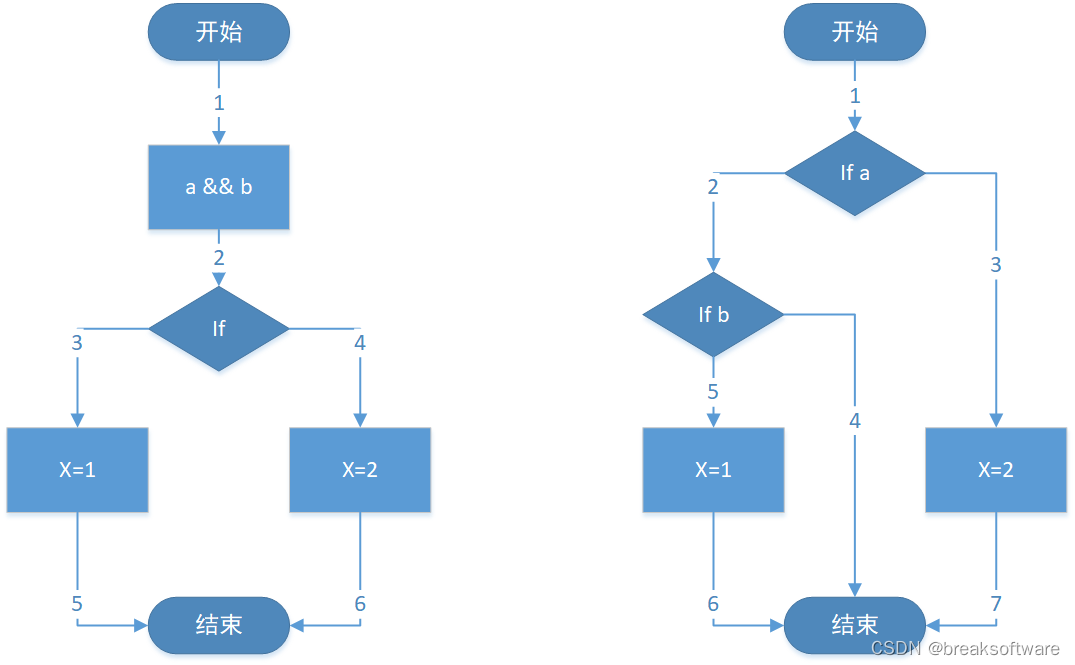
第一种写法的圈复杂度是:6(边)-6(节点)+2=2;第二种写法的圈复杂度是:7(边)-6(节点)+2=3。即第二种写法比第一种写法复杂度要高一些。我们从代码层面也能看出来如此。
它是基于论文《A Complexity Measure》。
其他参考资料
- https://www.geeksforgeeks.org/cyclomatic-complexity/
- https://www.perforce.com/blog/qac/what-cyclomatic-complexity
- https://en.wikipedia.org/wiki/Cyclomatic_complexity
Average Method Lines of Code (AMLOC) metric
方法的平均行数指标。如果这个值很大就不好,说明大量的逻辑集中在少数方法中,意味着方法逻辑可能比较臃肿,进而意味着复杂度很高。当然也不是越少越好,比如一行逻辑写一个方法。该指标鼓励大家写出更多短小、易于理解的方法,而不是内部极度臃肿的少数方法。
它是基于Paulo Roberto Miranda Meirelles的《Monitoring of source code metrics in open source projects》。
Average Number of Parameters (ANPM) metric
方法的平均参数个数指标。这个值最小是0,最大未知。但是如果值很大,意味着方法关联的参数很多,可能是因为这个方法内部逻辑没有拆解好,导致其包含太多可以独立出去的逻辑,进而需要更多参数来支持。所以这个值越小越好,越大意味着越复杂。
它是基于Paulo Roberto Miranda Meirelles的《Monitoring of source code metrics in open source projects》。
Coupling Between Objects (CBO) metric
对象之间的耦合 (CBO) 是耦合到特定类的类数量的计数,即一个类的方法调用另一个类的方法或访问另一个类的变量的情况。这些调用需要在两个方向上计数,因此类 A 的 CBO 是类 A 引用的类集合和引用类 A 的类集合的大小。由于这是一个集合 - 每个类仅计数一次,即使引用在两个方向上运行,即如果 A 引用 B 并且 B 引用 A,则 B 只计算一次。越大意味着耦合度越高。
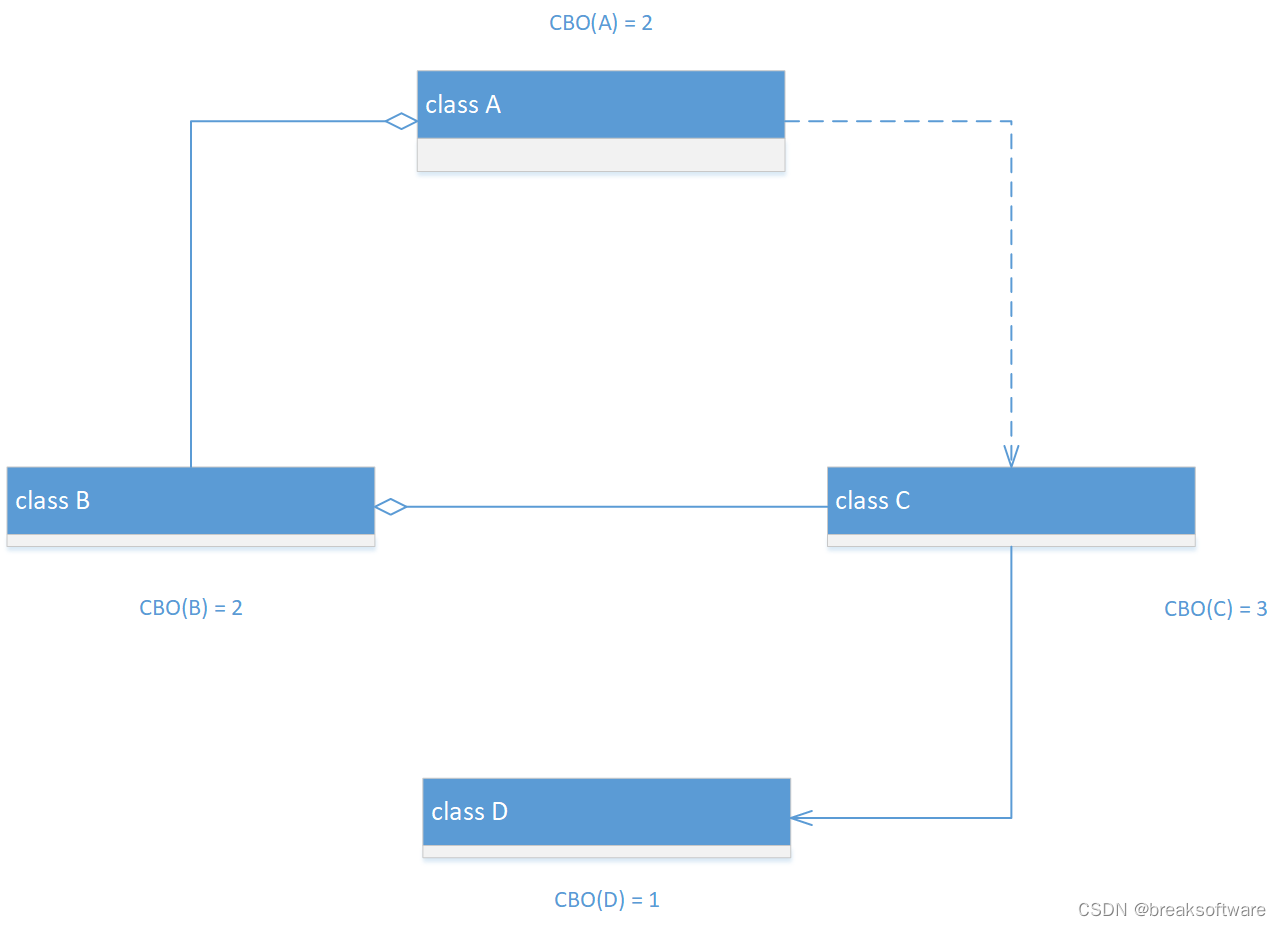
比如上图中C的CBO就高,它关联的类也是最多的。
它是基于Shyam R. Chidamber和Chris F. Kemerer的论文《A metrics suite for object oriented design》。
其他参考资料
Depth of Inheritance Tree (DIT) metric
最长继承树深度指标。它表示模块到最底层类的继承深度。越大代表越复杂。
数学公式是
DIT(m) = DIT(s(m)) + 1, ifc m != rootClass
DIT(m) = 0, otherwise.
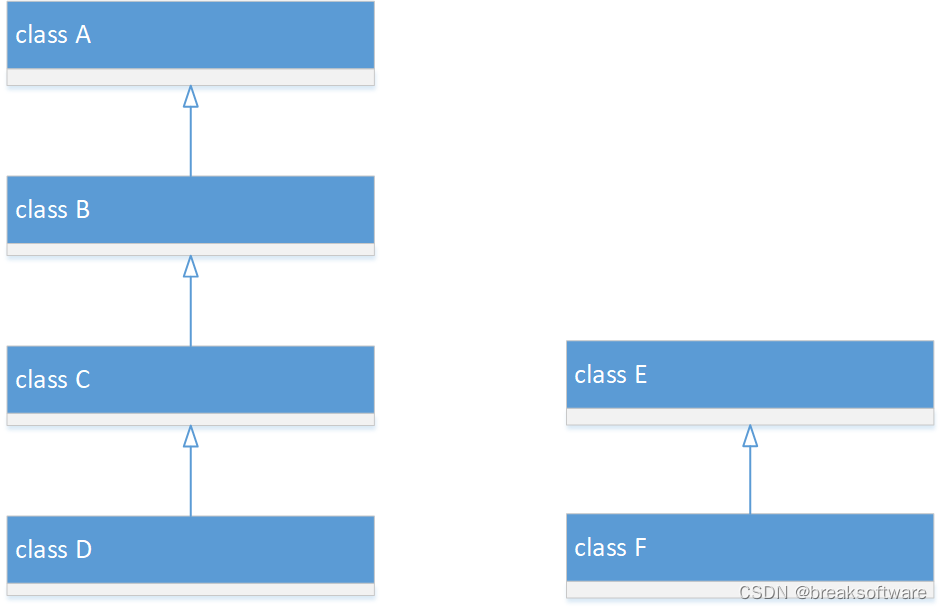
比如上图中D的深度就是3,F的深度就是1。D就比F复杂。
它是基于Eduardo Kessler Piveta, Ana Moreira, Marcelo Soares Pimenta, Joao Araujo, Pedro Guerreiro和R. Tom Price的《An empirical study of aspect-oriented metrics》。
其他参考资料
Lack of Cohesion of Methods (LCOM4) metric
方法缺乏内聚性指标。在软件工程中,我们希望代码是高内聚低耦合。耦合指标我们可以通过上面的CBO来看,而内聚性则可以看LCOM4指标。该值越高,表示越缺乏内聚性,表示越不好。
该指标基于Martin Hitz和Behzad Montazeri的 《Measuring coupling and cohesion in object-oriented systems》。
更多资料参考
- http://ieeexplore.ieee.org/abstract/document/6178856/
- http://citeseerx.ist.psu.edu/viewdoc/summary?doi=10.1.1.686.2543
- https://objectscriptquality.com/docs/metrics/lack-cohesion-methods-lcom4
- https://blog.ndepend.com/lack-of-cohesion-methods/
- https://www.arisa.se/compendium/node116.html
Lines of Code (LOC) metric
不包括空行和注释的代码行数。可以很好理解:一般情况下,代码越长越复杂。
它是基于Taghi M. Khoshgoftaar和John C. Munson的《The lines of code metric as a predictor of program faults: a critical analysis》。
Number of Attributes (NOA) metric
类的属性数量指标。如果一个类的属性数量很多,预示着它可能拥有太多的功能,即功能冗余。应该考虑将其拆解成更多高内聚、功能简单的类。一般情况下,该值越大意味着越复杂。
它是基于Paulo Roberto Miranda Meirelles的《Monitoring of source code metrics in open source projects》。
Number of Children (NOC) metric
从属于某个类的直接子类的数量指标。它是一个类对设计和系统的潜在影响的指标。子级的数量越多,父级不正确抽象的可能性就越大,并且可能是滥用子类的情况。但是子级的数量越多,可重用性就越大,因为继承是重用的一种形式。如果一个类有大量子类,则可能需要对该类的方法进行更多测试,从而增加测试时间。所以这个值没有很强的预示性。
它是基于Linda H. Rosenberg和Lawrence E. Hyatt的《Software Quality Metrics for Object-Oriented Environments》。
更多参考资料
Number of Methods (NOM) metric
类的方法数指标。如果一个类的方法很多,可能预示着它有太多的功能,缺乏内聚性。最好将其拆解成功能独立的小型类。该指标越大表示越复杂。
它是基于Paulo Roberto Miranda Meirelles的《Monitoring of source code metrics in open source projects》。
Number of Public Attributes (NPA) metric
类的公有属性数指标。类的属性应该通过方法来访问,而不是直接暴露给外面使用。所以该值应该为0,否则就可能不是好的设计。
它是基于Paulo Roberto Miranda Meirelles的《Monitoring of source code metrics in open source projects》。
Number of Public Methods (NPM) metric
类的公有方法数指标。如果类的公有方法比较多,意味着它对外提供的服务很多。这个不符合高内聚的设计思想。最好将这样的类拆解成功能独立的类。所以这个值越小越好。
它是基于Paulo Roberto Miranda Meirelles的《Monitoring of source code metrics in open source projects》。
Response for Class (RFC) metric
类的响应指标。它是指一个类的方法数,加上在它内部调用的其他类的方法数。如果这个数越大,说明这个类的耦合性越大,或者功能太多。这个就是需要拆解的类。所以该值越大,表示越复杂。
class BirdTeam {
public:
void Run() {
Bird * bird = new Bird();
bird->run();
}
void Fly() {
Bird * bird = new Bird();
bird->FlyUp();
bird->FlyDown();
}
比如上面BirdTeam这个类,它有2个方法,其中调用了Bird的类3的方法。这样它的RFC就是2+3=5。
它是基于Shyam R. Chidamber和Chris F. Kemerer的《A metrics suite for object oriented design》
其他参考资料
Structural Complexity (SC) metric
结构复杂度。CBO(耦合度指标)和LCOM4(缺乏内聚性)的乘积与该指标正相关。所以它越大表示越不好,因为可能内聚比较差,也可能耦合性太高,也可能两者都很差。
它是基于Paulo Roberto Miranda Meirelles的《Monitoring of source code metrics in open source projects》。
代码
https://github.com/f304646673/tools/tree/main/analizo
参考资料
- https://www.analizo.org/
- https://metacpan.org/dist/Analizo
- https://webhostinggeeks.com/howto/how-to-install-perl-on-ubuntu/
- https://baike.baidu.com/item/%E5%9C%88%E5%A4%8D%E6%9D%82%E5%BA%A6/828737
- https://zhuanlan.zhihu.com/p/139386961
- https://manpages.ubuntu.com/manpages//noble/man3/Analizo::Metric::AfferentConnections.3pm.html

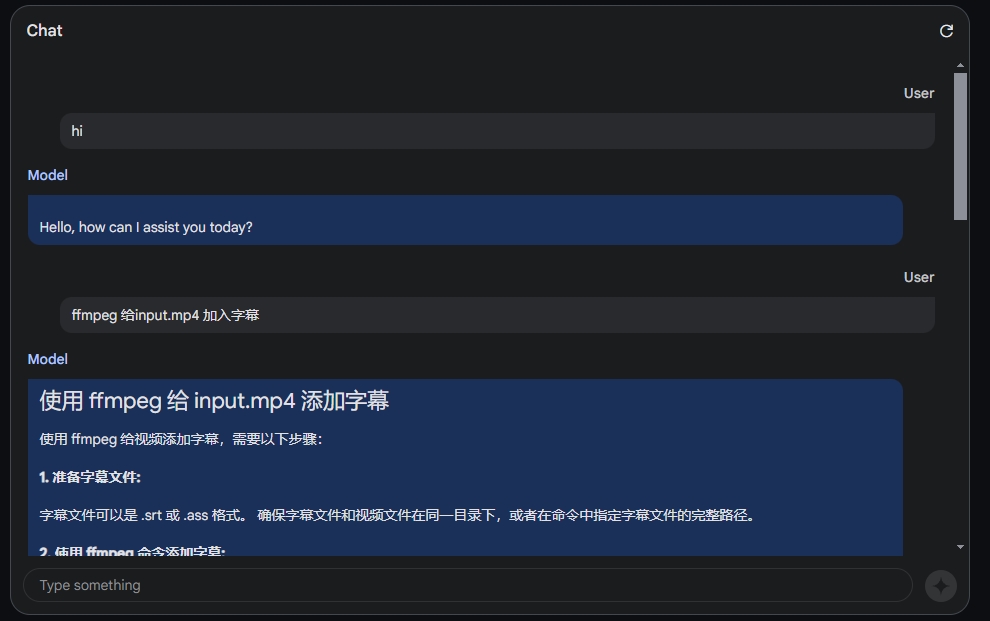



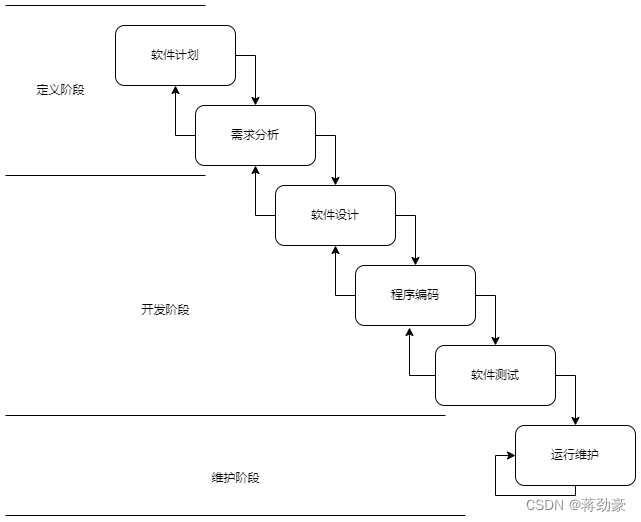



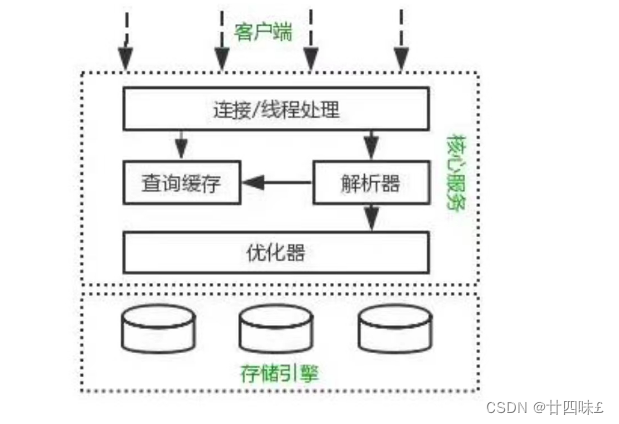
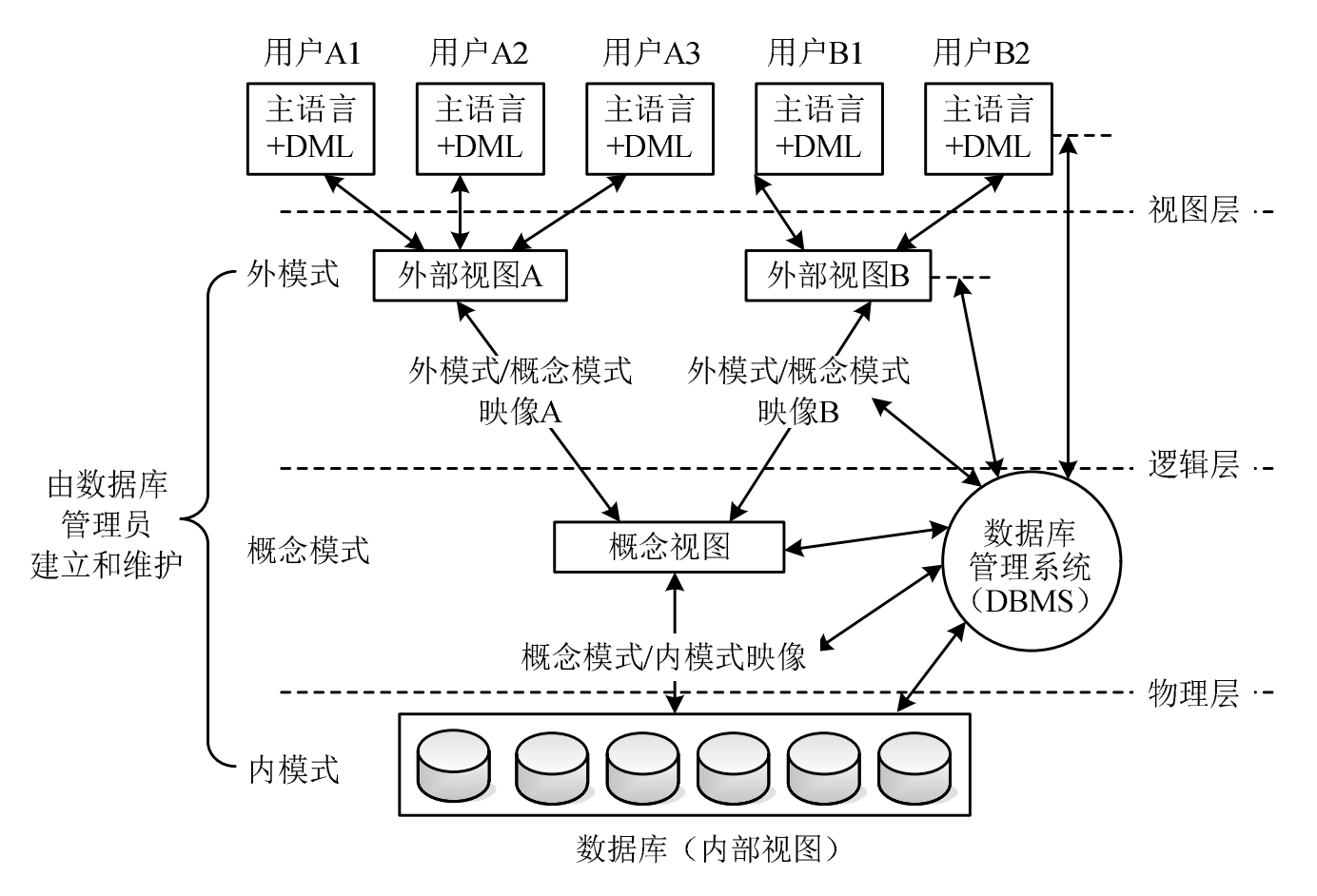



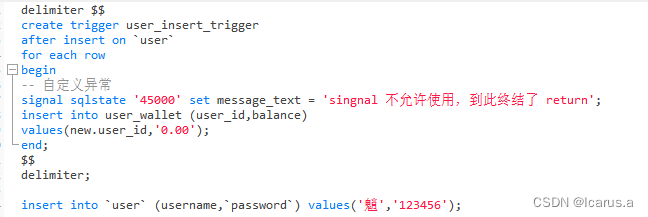
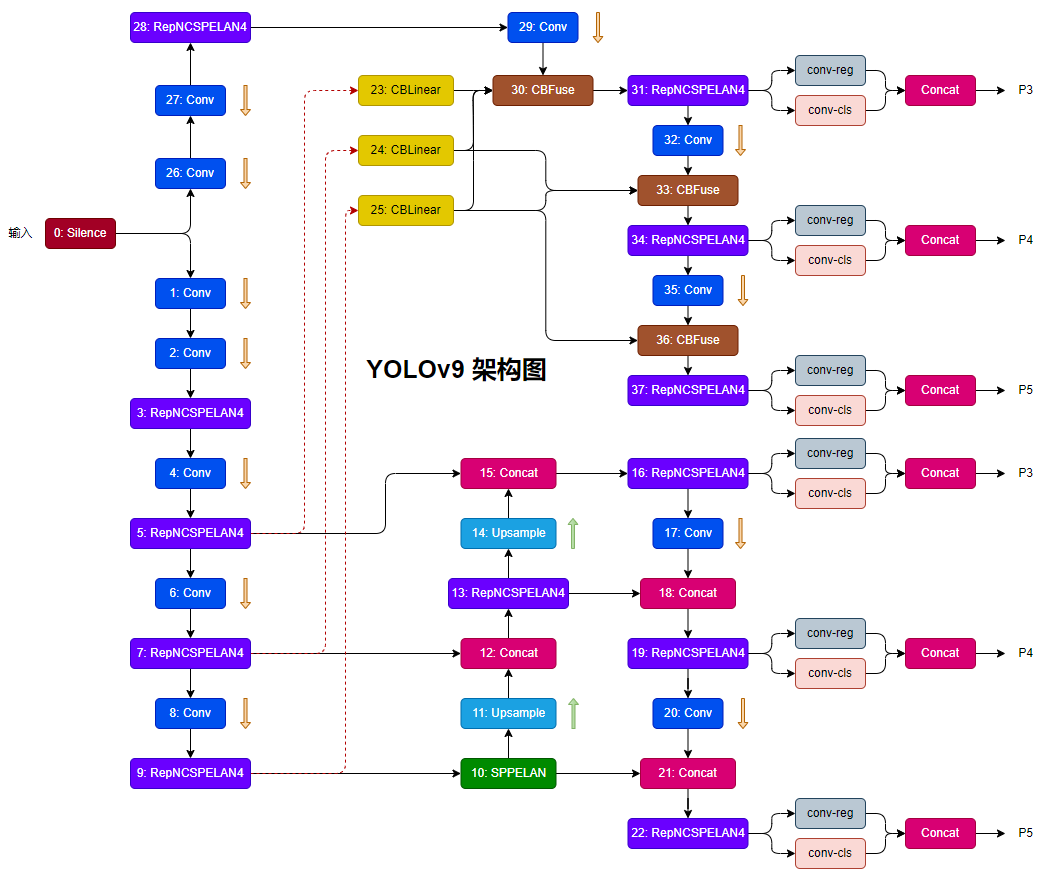






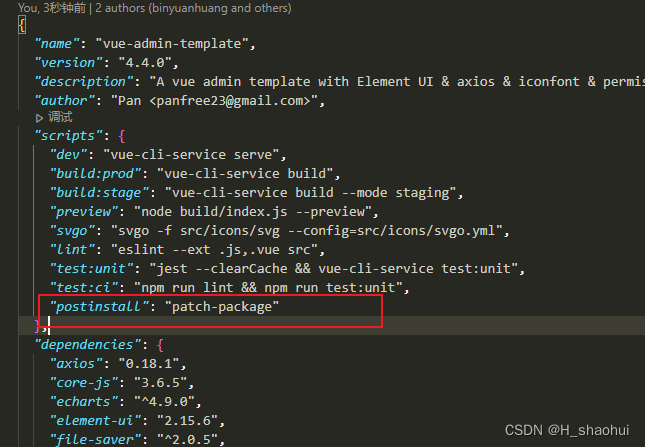
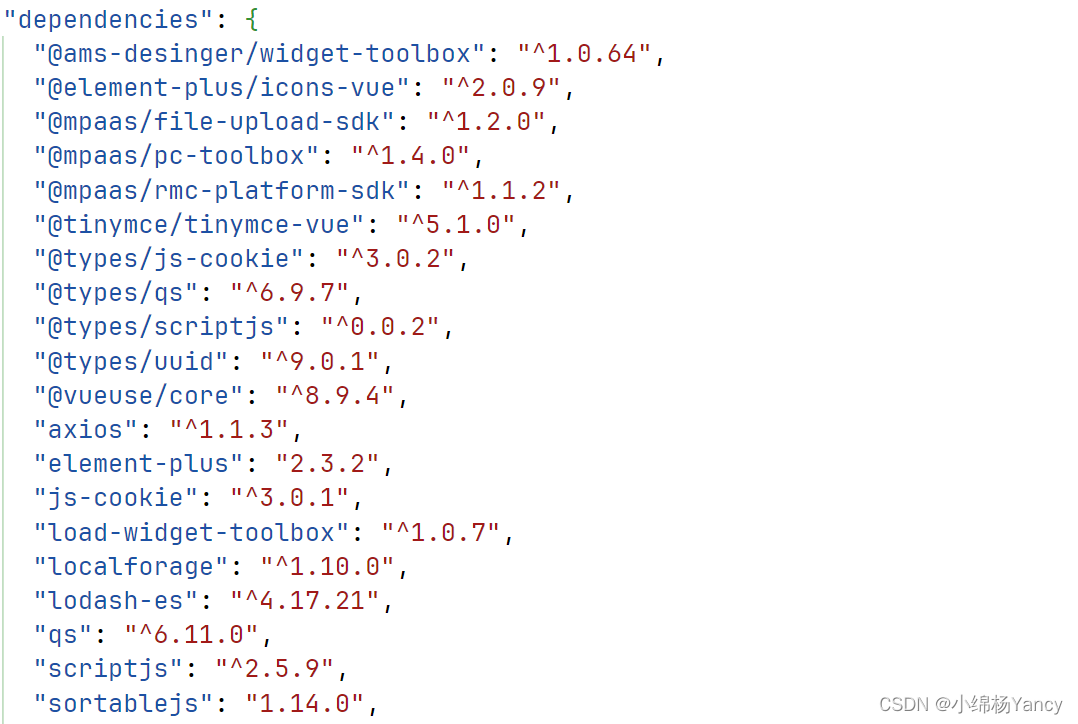
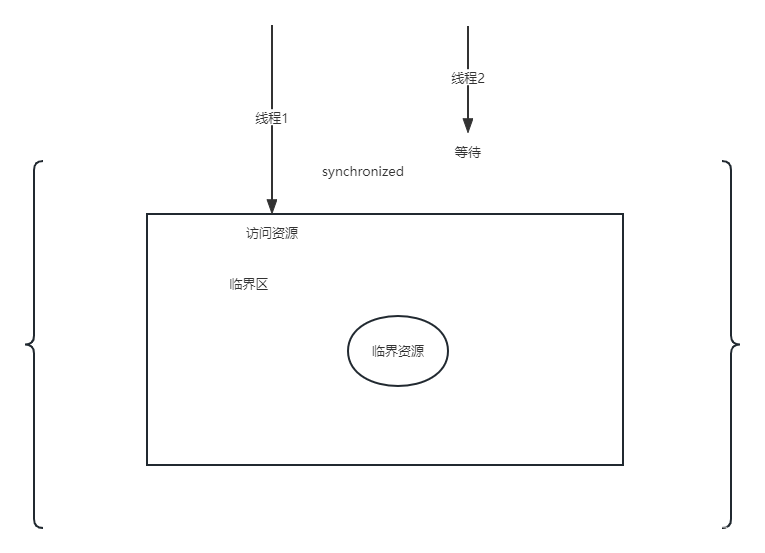
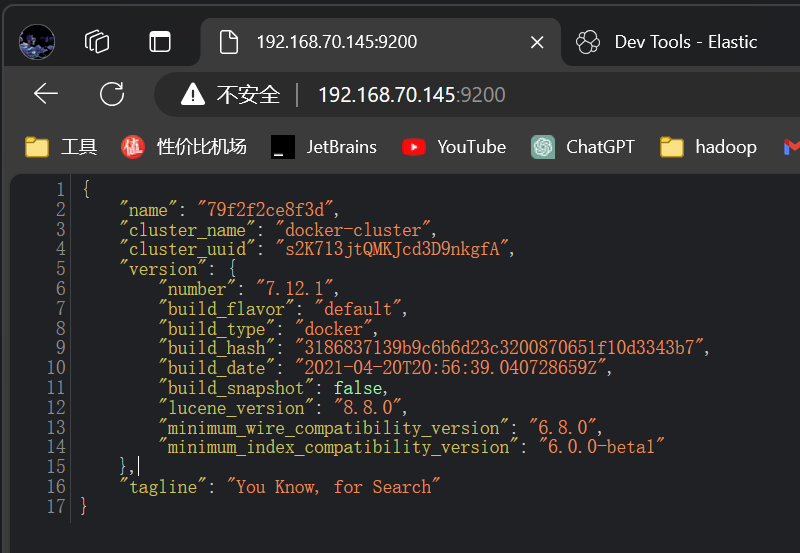

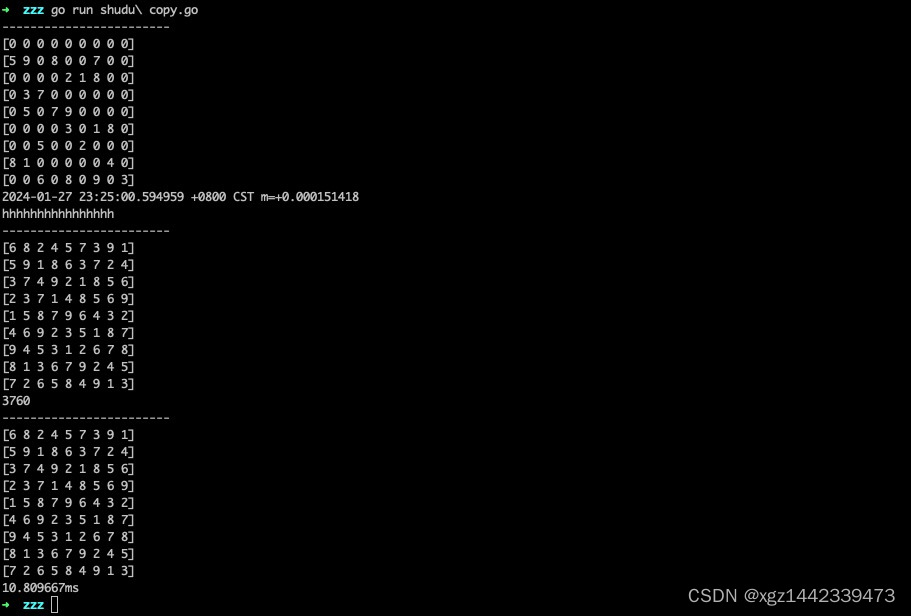



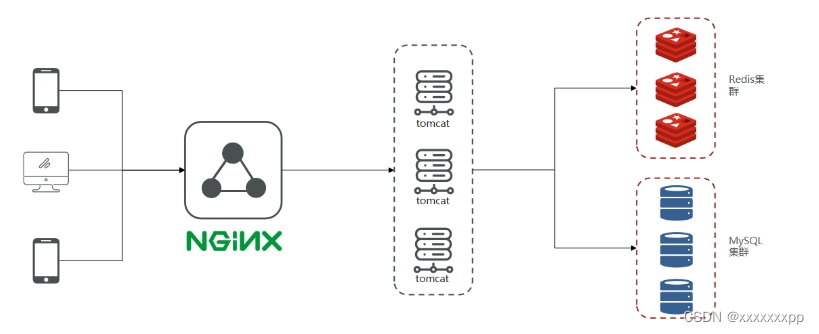

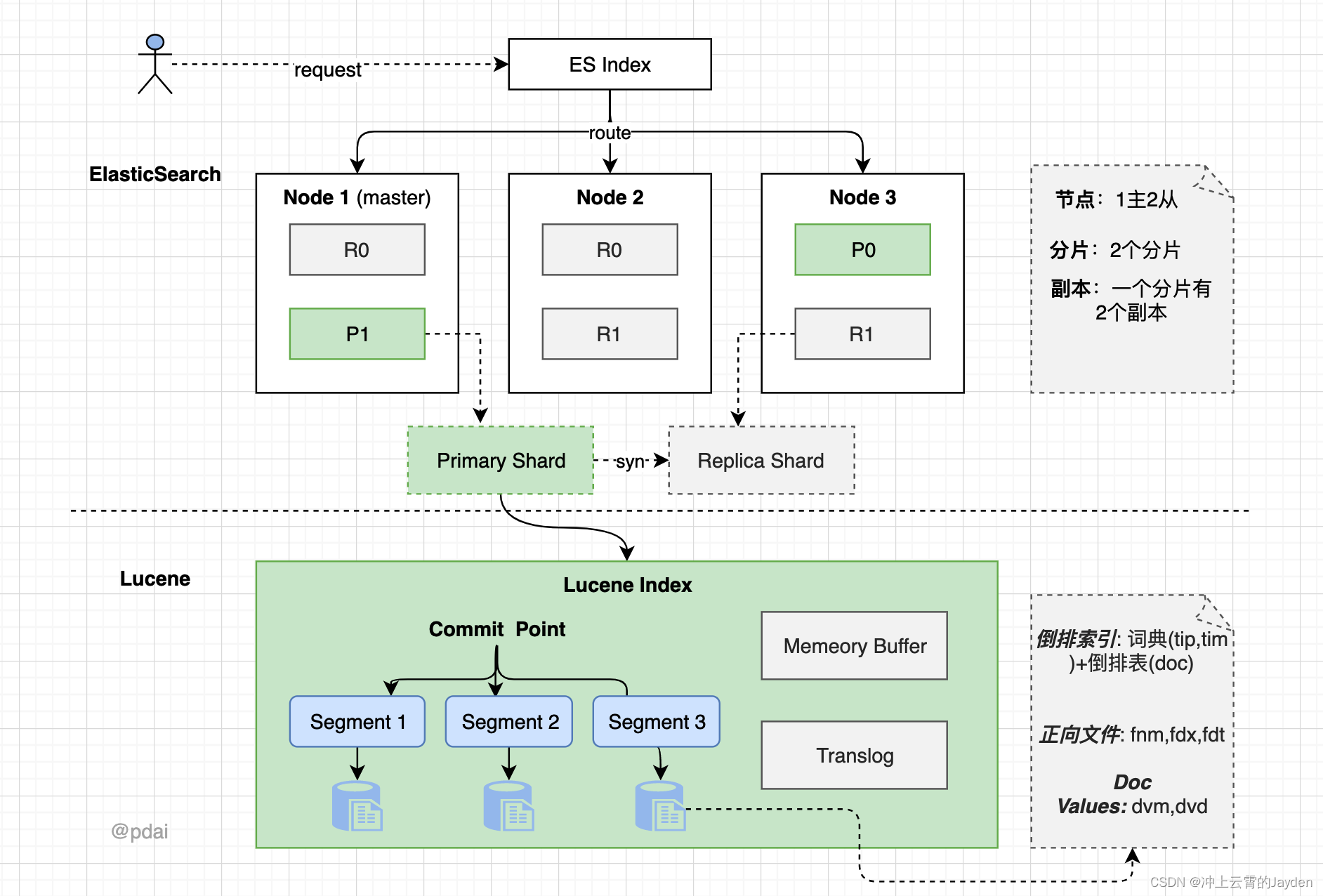






![如何用一根网线和51单片机做简单门禁[带破解器]](https://img-blog.csdnimg.cn/img_convert/7546d738ed329e018cd87fd287559f11.jpeg)
